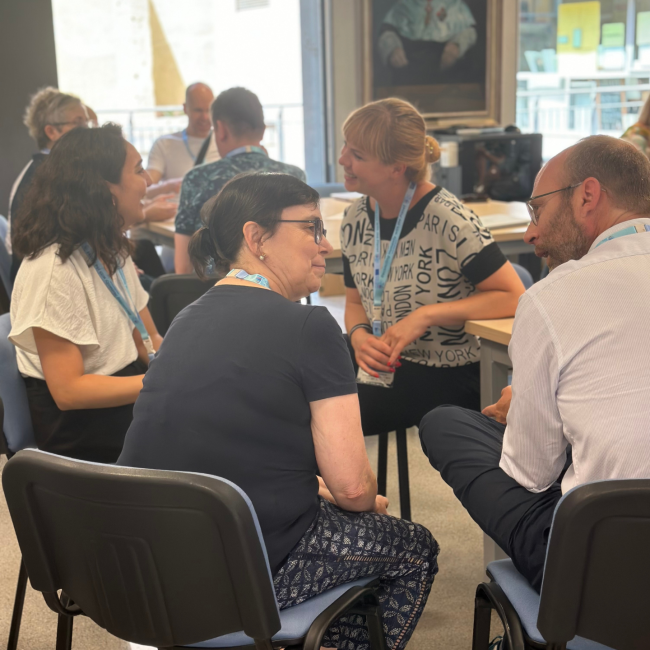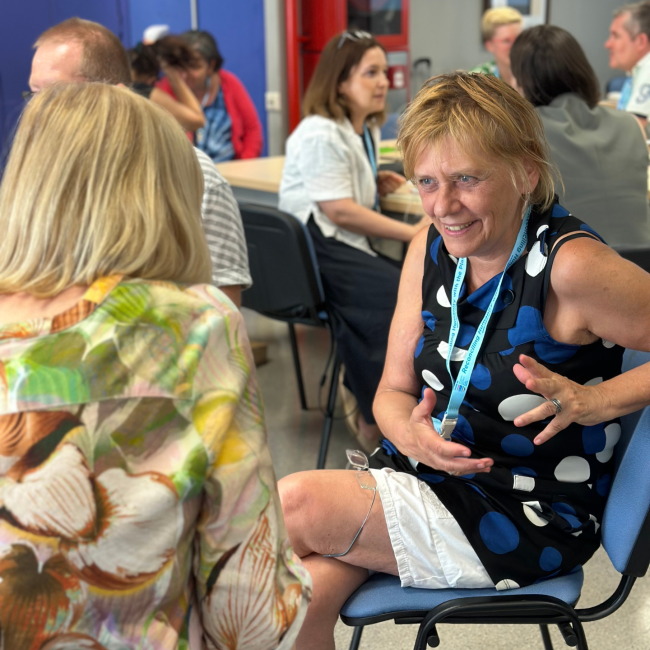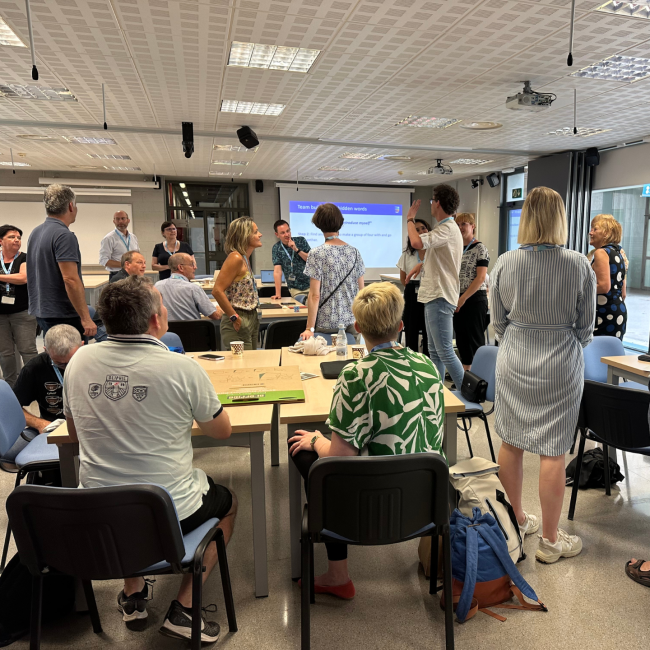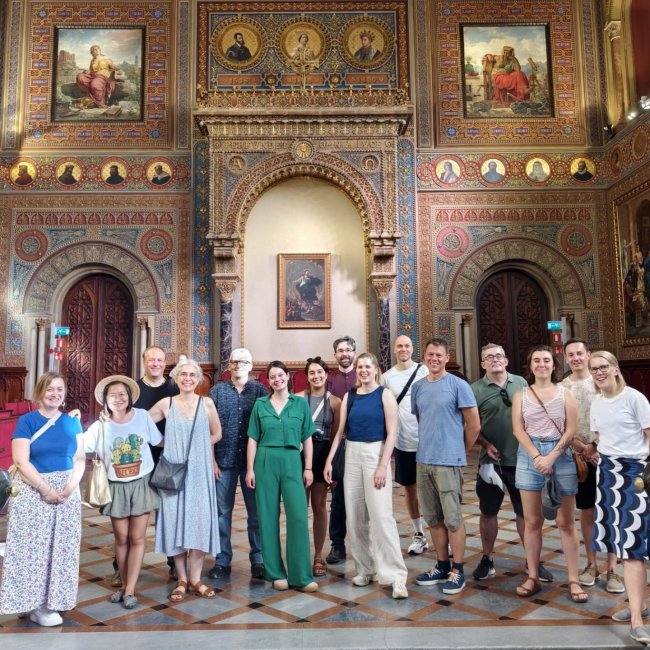Hackathon in Barcelona: how to better integrate inclusivity and interculturality into the learning process

From 15-19th July, a Hackathon took place in Barcelona, bringing together teaching staff from the MSc Global challenges for Sustainability to work on innovative improvements for the master’s programme.
Focusing on inclusivity and global perspectives, a two-parts workshop was the opportunity for about 40 people coming from CHARM-EU alliance’s universities to reflect on their own teaching process and therefore find new paths of improvement.
“There are different teaching styles, different learning styles: we need to match them”, asserted firmly Cati Jerez Paredero, coordinator of the University of Barcelona Support programme for Refugees and People from conflict zones, member of the Diversity Equity and inclusive office of CHARM-EU alliance, as she addressed teaching staff of the MSc Global challenges for Sustainability. Her workshop was taking place during a hackathon aiming at improving the master’s program and configurating its new extended version that will include all the 9 partner universities in 2025. This makes perfectly sense: integrating inclusivity and global perspectives in the teaching process is part of the improvements expected, both by the students and the teachers. Hence the importance of helping the latter better understand what they already do to this regard, and what they can do to improve it.
The need to adapt
“You have to be aware of what you are already doing”, explained Jerez Paredero while pointing out the importance of “adaptability and flexibility”. Participants of the workshop were then asked to list their expectations and knowledge of Universal Design for Learning (UDL), leading to a first open discussion about the necessity of having in mind the diversity of students (cultural and economic background, disabilities, gender issues…) and their needs from the start. “We need to adapt and provide different types of materials to show them”, she emphasized. Through the main idea of providing equal opportunities to learn to all students, Cati Jerez Paredero showed the core principes of UDL and the way it could be adapted to the MSc, focusing on representation, expression and engagement. As well as how it impacted how information was given to the students, how these students were assessed and how they were asked to participate. Following enthusiastic and lively discussions between the participants, who exchanged ideas and tools, Cati concluded: “You know more than you think, you’re already doing a lot of things. You just must be aware of it. For that, there are a lot of tools available. Remember that a roadmap or a template are never done just for one type of person only”.
Focusing on “transnational and intercultural learning”, one of the important educational principles of CHARM-EU, the second part of the workshop was another step forward into improvement of the teaching process. The aim being to better implement these principles, which are quite difficult to assess, into the modules. Yuanfei Huang, one of the facilitators of the work session, educationalist from the University of Montpellier, started by a summarized introduction on global diverse perspective: “By presenting different perspectives and narratives, a global perspective not only enhances the learning process but also equips students with the skills they need to survive and prosper in a society where cross-border cooperation is the norm.”
Interactions with the Global South
Thus, showing how complex it was to work on it or even to define it concretely. The main assets of the global perspective being “promoting cultural understanding, fostering critical thinking and building languages skills”. All of them leading to students (and forthcoming professionals) being able to collaborate across borders, envision holistic solution and being provided with a useful getaway into understanding other cultures. By small groups, teaching staff from CHARM-EU universities was challenged to share good practice on how to integrate reflection on intercultural competencies, but also determine what activities could help students realize they were actively part of the teaching. Using design thinking methods, it also allowed the teachers to share, discuss and combine their ideas, analyzing the best use of case studies, the necessity of working with international peers (teachers or stakeholders), as well as mobility opportunities. Therefore showing, for example, the needs and advantages of more interactions with the Global South.
Interculturality and the complexity of global challenges
Such a workshop, held with teaching staff from so many different European countries of CHARM-EU alliance, showed the importance of interculturality in the building of the master itself. After the workshop, Yuanfei Huang analysed for us the benefits of it for the students: “Interculturality is a key value in CHARM.-EU, deeply linked to diversity. Especially in the master’s programme Global challenges in sustainability. The master gives the students at least three opportunities to develop their mindset of interculturality. First, by working on a global topic. Second, to work with peers, teachers and lecturers from different backgrounds, disciplines or cultures, can help them develop intercultural skills in a professional setting. Third, mobility is essential, requiring them to move around a topic and see how the same issues are treated in other territories. Our final objective is to help them have a better understanding of the complexity of working on global challenges.”





